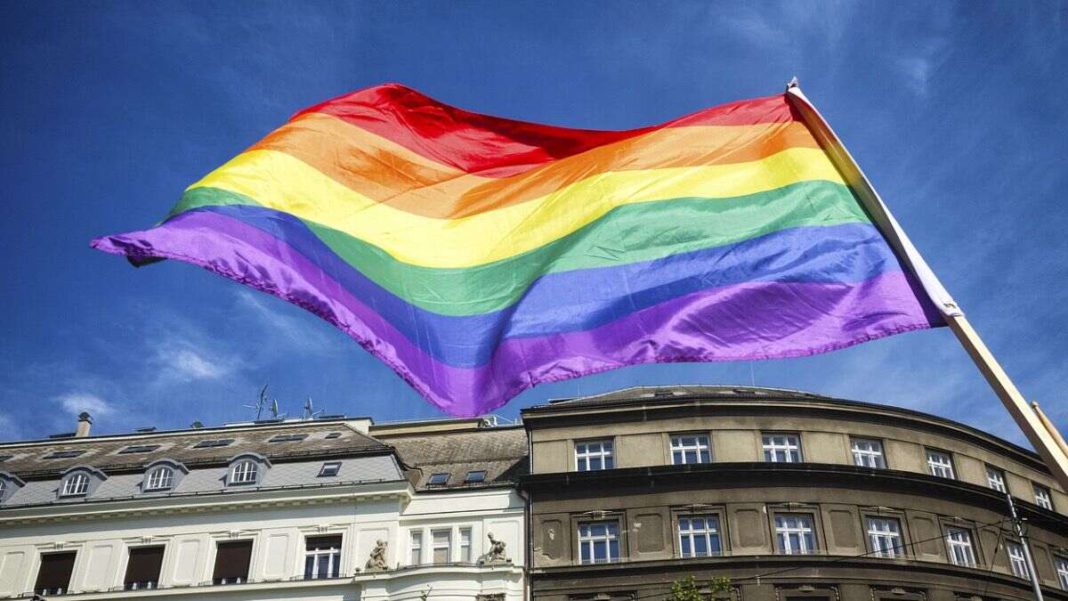INDIA: India’s top court has rejected a landmark petition advocating for the acceptance of same-sex marriage in the nation. This decision is a setback for the LGBTQ+ community, as it withholds the right for tens of millions of same-sex couples to marry their partners.
In a lengthy ruling, the Supreme Court of India exhorted the government to provide legal recognition for same-sex couples to prevent discrimination but refrained from incorporating these couples into the current legal framework of marriage.
A panel of five judges, led by Chief Justice of India, D.Y. Chandrachud, deliberated on the case from April to May this year and delivered their verdict on Tuesday. The rest of the bench comprises Justices Sanjay Kishan Kaul, S Ravindra Bhat, Hima Kohli, and PS Narasimha.
Chandrachud stated that there were varying degrees of “agreement and disagreement on how far we have to go” on same-sex marriages as he commenced the reading of his decision.
Out of the remaining four judges, two supported Chandrachud’s stance against legalising same-sex marriages, forming a majority opinion.
Regarding adoption by queer couples, the Chief Justice stated, “The Juvenile Justice (Care and Protection of Children) Act, 2015, does not preclude unmarried couples from adopting. The Union of India has not proved that precluding unmarried couples from adopting is in the best interest of the child. So, the Central Adoption Resource Authority has exceeded its authority in barring unmarried couples.”
He further noted, “There is no material on record to prove that only a married heterosexual couple can provide stability to a child.”
While Justice S K Kaul concurred with the Chief Justice on granting certain rights to queer couples, Justice S Ravindra Bhat expressed a combination of agreement and disagreement with Chief Justice Chandrachud’s viewpoints on specific aspects.
Justice Sanjay Kishan Kaul stated that providing legal acknowledgment to non-heterosexual relationships marked a progression towards achieving marriage equality.
On the other hand, Justice PS Narasimha argued that it would be constitutionally impermissible to recognise a right to a civil union that closely resembles marriage. He contended that the constitutional challenge against the Special Marriage Act and Foreign Marriage Act should fail.
“To imagine queer as existing only in urban spaces would be like erasing them; queerness can be regardless of one’s caste or class,” CJI Chandrachud asserted, stating that homosexuality or queerness was “not an urban concept or restricted to upper class of society.”
“Withdrawal of the State from the domestic space leaves the vulnerable party unprotected. Thus all intimate activities within private space cannot be said to be beyond State’s scrutiny,” CJI Chandrachud added.
The Chief Justice also instructed the police to conduct a preliminary inquiry before registering an FIR against a queer couple based on their relationship. He stressed that it is the responsibility of the Central government, States, and Union Territories to ensure that the queer community is not subjected to discrimination.
The CJI has issued other directives to end prejudice against LGBT people:
1. No discrimination in the provision of goods and services.
2. A hotline dedicated to the gay community.
3. Safe residences for LGBT couples.
4. Ensuring that intersex children are not coerced into procedures.
5. Prohibiting the coercion of anyone to undergo hormone therapy.
6. Refusing to allow police to force LGBT people to return to their biological families.
Meanwhile, Solicitor General Tushar Mehta stated that the government would form a panel to determine the rights and entitlements of individuals in queer partnerships.
This court decision arrives five years after a momentous 2018 ruling in which the Supreme Court abolished a colonial-era prohibition on homosexual acts.
The case encompassed 21 distinct petitions from members of the LGBT+ community who asserted that their inability to marry infringed upon their constitutional rights, effectively categorising them as “second-class citizens.”
The government opposed these petitions, which emerged only five years after India decriminalised homosexual acts. Their argument was that marriage is a solely heterosexual institution, and those advocating for marriage equality were perceived as promoting an “urban elitist view for the purpose of social acceptance.”
The case was overseen by Chief Justice DY Chandrachud, the most senior judge, alongside four other Supreme Court justices. The proceedings concluded on May 11 of this year, with the Court taking more than five months to deliberate on its verdict.
While the judgement underscores the significance of providing legal recognition to same-sex couples, it refrains from making changes to the existing marriage laws to accommodate them. This verdict serves as both a call to action and an acknowledgment of the ongoing LGBTQ+ rights struggle in India.
Last year, the matter was brought before the nation’s highest court, with 18 same-sex couples submitting petitions to seek recognition of same-sex marriages under the Special Marriage Act, the Foreign Marriage Act, and the Hindu Marriage Act.
Also Read: SC to Hold the Hearing of Same-sex Marriage’s Recognition from April 18



